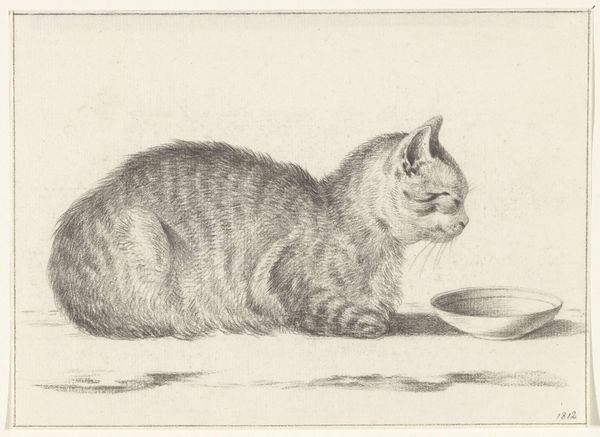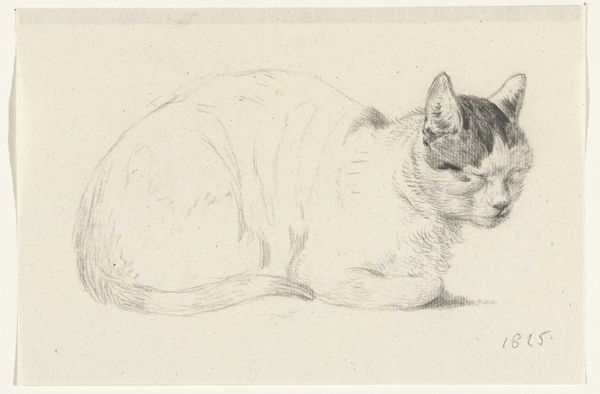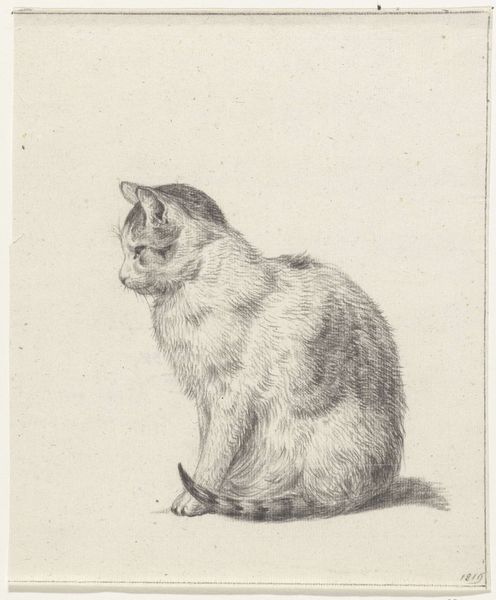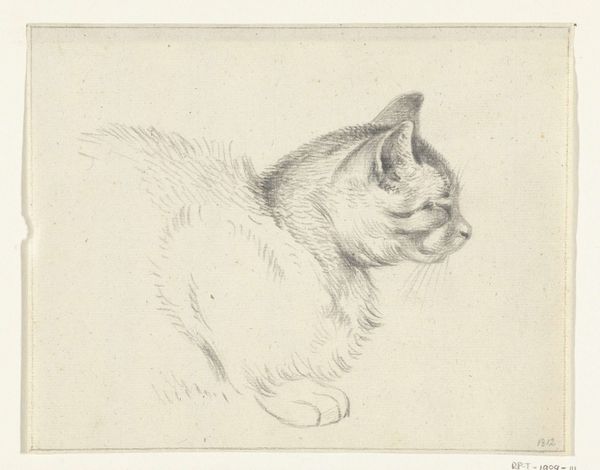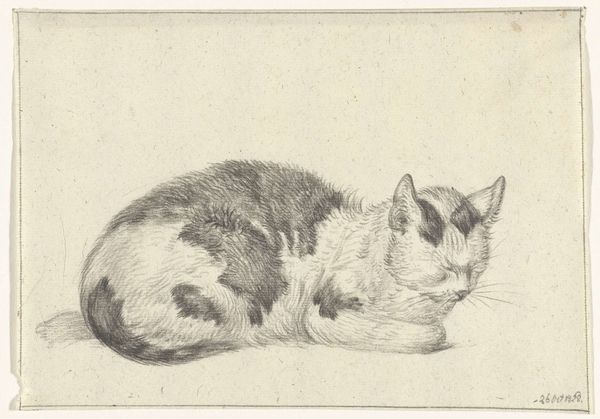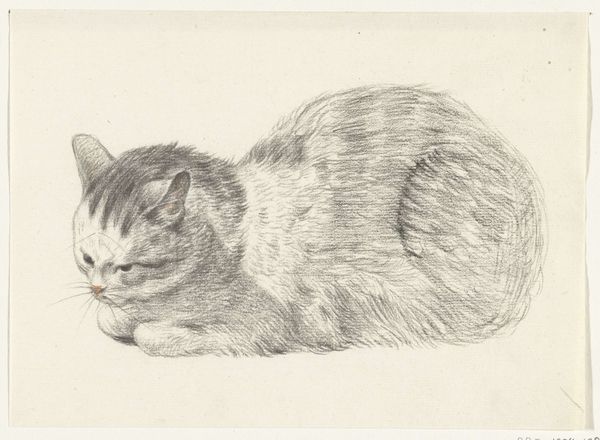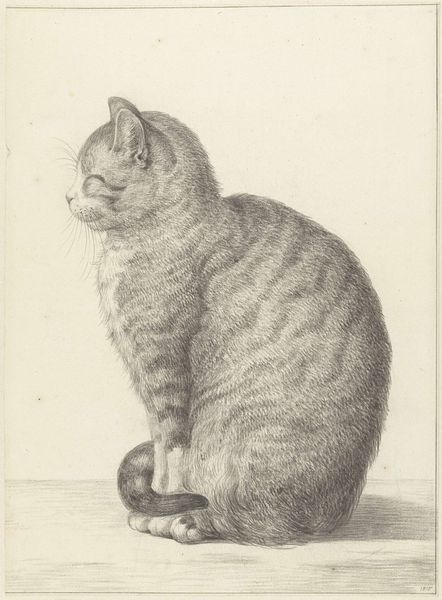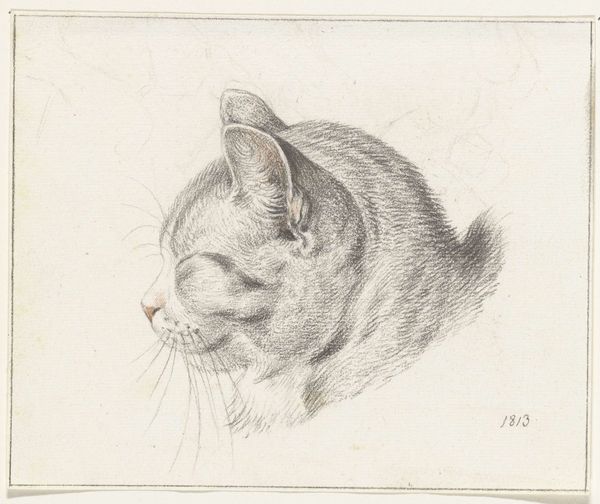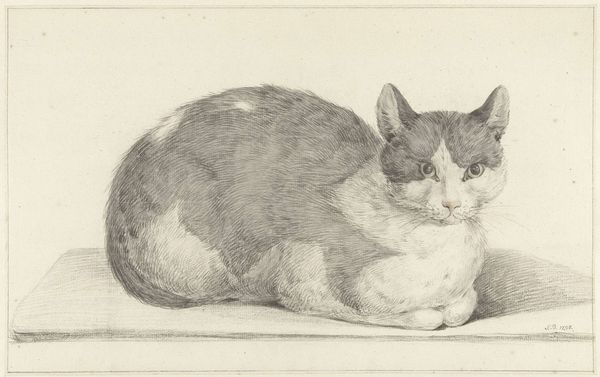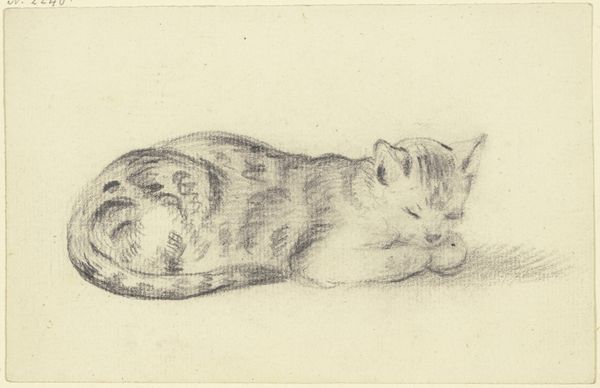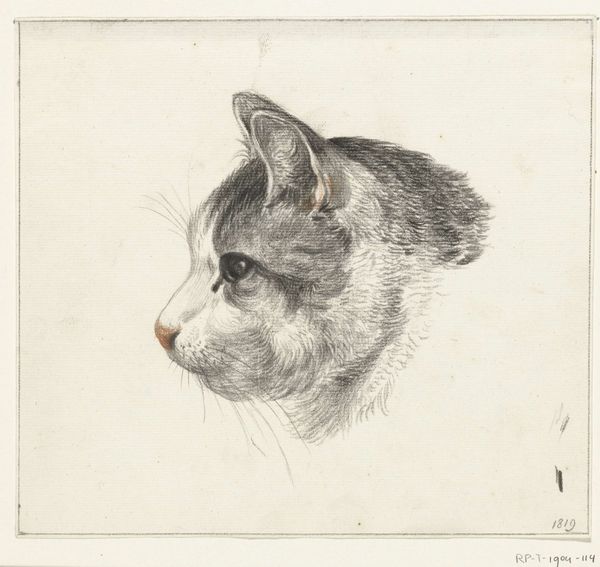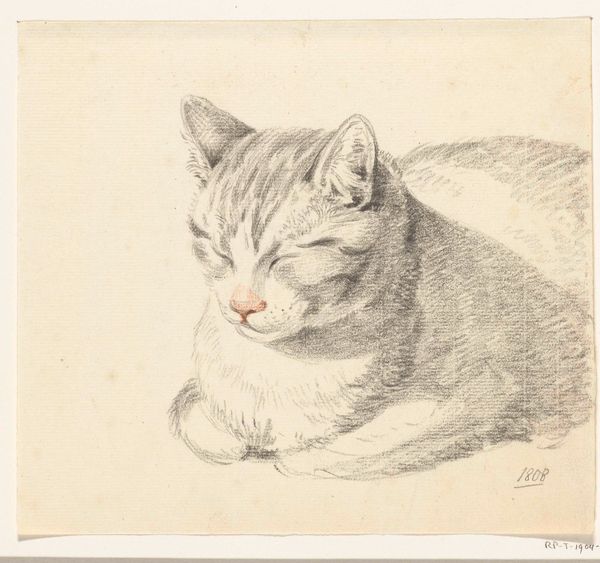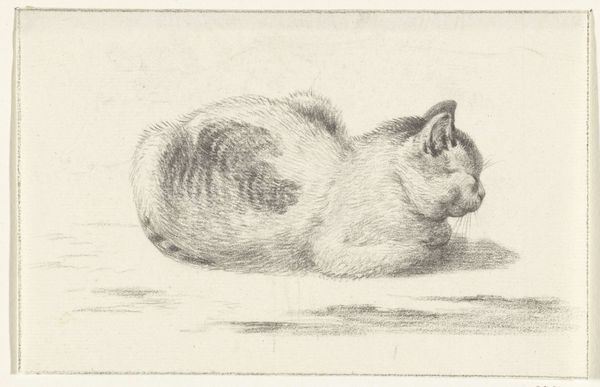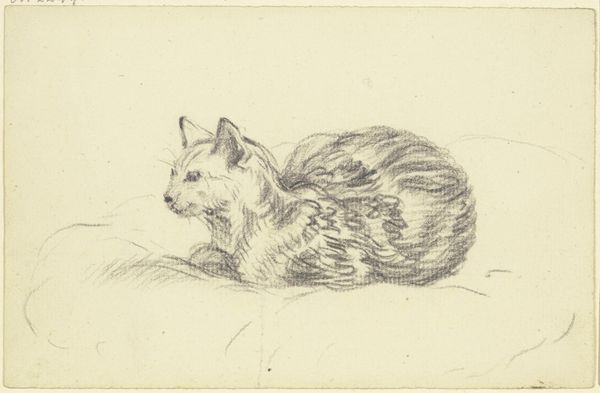
drawing, pencil
#
portrait
#
pencil drawn
#
drawing
#
animal
#
pencil sketch
#
pencil
#
pencil work
#
realism
Dimensions: height 144 mm, width 195 mm
Copyright: Rijks Museum: Open Domain
Editor: This is "Liggende kat, naar links," or "Lying Cat, facing left," by Jean Bernard, dating back to 1811. It’s a pencil drawing. There’s something so delicate and intimate about the subject and medium; it captures the essence of quiet domesticity. What stands out to you? Curator: The directness of the pencil on paper is interesting, and its production within an academic environment offers clues about 19th-century artistic labor. What does it mean for a student to produce such a commonplace subject matter using a "precious" medium? Was drawing a form of docile labor, a way to internalize aesthetic values? What function did the paper serve? Editor: So, you're focusing less on the 'catness' of it and more on the social implications of a student sketching like this back then? Curator: Exactly. We tend to view drawings as spontaneous, but consider the role of academic institutions at the time. Drawing wasn't just a skill; it was a taught process linked to larger societal structures. Think about the sourcing of the pencil and paper too, as products of industry and commerce. How might those processes influence the art being created? Editor: That's a fascinating angle I hadn't considered. It transforms a seemingly simple sketch into something far more complex. The raw materials, the studio labor...it all speaks to the creation process and the art world in a completely different way. Curator: It is easy to idealize making as free expression. Examining it materially demystifies it. That critical engagement enriches our viewing of the piece. Editor: It really does. I'll definitely look at drawings with a more critical eye now, thinking about their materials and context, not just the image itself. Curator: Glad to provide this perspective! It provides us a more thorough interpretation.
Comments
No comments
Be the first to comment and join the conversation on the ultimate creative platform.
